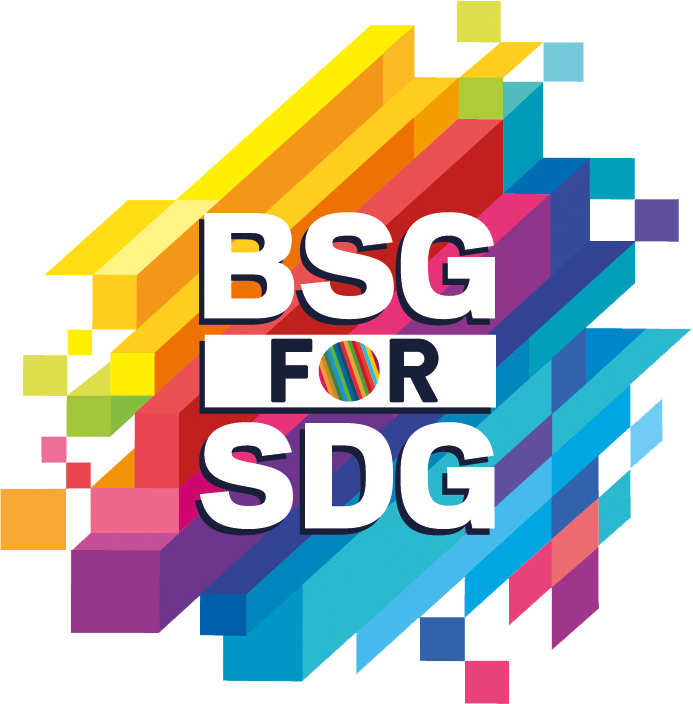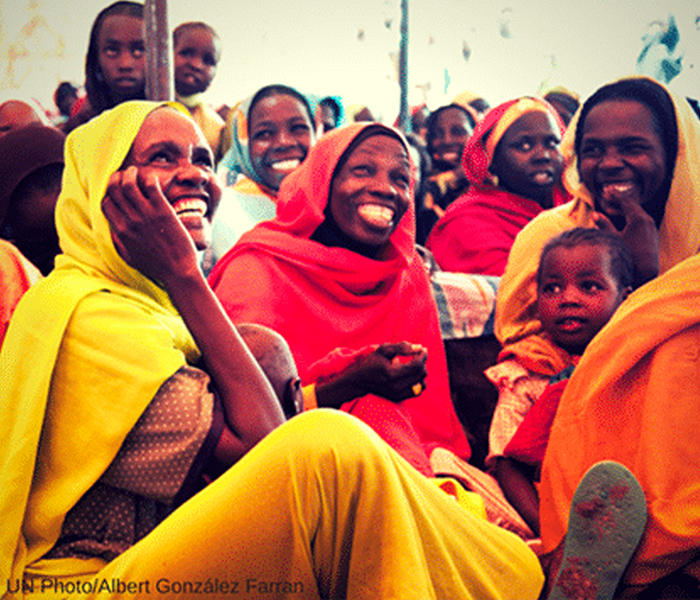Greetings from BSG Chairperson Mr. Vishesh Gupta
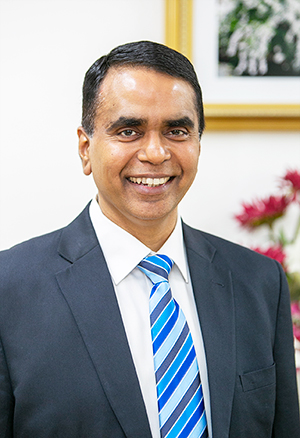
Dear Members of Bharat Soka Gakkai and All Readers,
The month of spring is upon us. Spring is often associated with greater hope, new beginnings, and fresh growth. Even though the world continues to face unforeseen circumstances today, but I am confident that as long as we continue to work on our own inner transformation, and as long as we continue to apply ‘Sustainable Human Behaviour’ as our basic way of life, we will be able to bounce back from any adversity and make great progress in our life and in society.
The month of March is also when we celebrate International Women’s Day. Women, hope, peace, and growth are synonymous. SGI President Daisaku Ikeda once remarked: “Women are, in my view, natural peacemakers. As givers and nurturers of life, through their focus on human relationships and their engagement with the demanding work of raising children and protecting family life, they develop a deep sense of empathy that cuts through to underlying human realities.” A society that supports the growth and empowerment of women, will continue to grow and flourish for eternity.
It is with this thought that the theme for the fourth edition of the ‘SUSTAINABLE’ newsletter is focused on ‘Women Empowerment and Sustainable Development Goals (SDGs)’, particularly deepening our understanding of the progress, and at the same time challenges that we continue to face with regards to women and girls empowerment.
The Lotus Sutra narrates the story of the Dragon King’s daughter, also known as the Dragon Girl, an eight-year old, non-human being, who attained perfect enlightenment just as she was, and thereby opened the way for all men and women to attain Buddhahood. Her story is a powerful testimony that when women awaken to give full expression to their potential, they benefit not only themselves but also the entire humanity. SGI President Daisaku Ikeda concurs when he writes, “The twenty-first century will be the century of life. It will be the century of women”. (SGI Newsletter, Aug-Sept, 1998, p. 106).
This year marks the 27th anniversary of the adoption of the Beijing Declaration and Platform for Action (BPfA), which served as an important turning point in the global momentum to achieve women empowerment. The new Soka Gakkai Charter, adopted in November 2021, makes an explicit commitment to “promote the empowerment of women.” These intersecting timelines are an expression of Soka Gakkai’s solid commitment towards creating a world where all people, including women and girls, can live a life of true freedom and joy, like a modern day Dragon Girl.
In this issue we will learn about the key milestones and challenges in achieving a gender equal world, and take a dive to boldly face our own gender biases and empower each other. We hope you will draw hope and inspiration from this issue to freely declare ‘I enjoy living in this world.’ I look forward to hearing your views and takeaways from this 4th issue of the ‘SUSTAINABLE’ newsletter.
Warm regards
Vishesh Gupta
BSG Chairperson
Gender equality is a fundamental human right and a necessary foundation for a sustainable, peaceful and prosperous world. SDG Goal 5 aims to achieve gender equality and empower all women and girls, through targets such as ending all forms of discrimination and violence against women and girls, elimination of all forms of harmful practices such as child or forced marraige, women’s full and effective participation in all levels of decision-making, and reforms to enable women’s equal rights to economic resources including access to ownership over land and other forms of properties and inheritance, among others.
The world has shown some progress on gender equality over the last decade or so, such as more girls are going to school now than ever before, fewer girls are forced into early marriage, more women are participating in the workforce and in politics. However, the progress made is inadequate; discriminatory laws and social practices against women continue. Women are paid 16% less than male workers at workplaces, and only 35% of science, technology, engineering and mathematics (STEM) students in higher education globally are women.
Before the pandemic struck, women spent about 2.5 times as many hours as men on unpaid domestic work and care work. But the extended nature of lockdowns and school closures has exponentially increased women’s burden of unpaid domestic and care work, eventually pushing many women out of the labour force altogether. Moreover, one in three women have been subjected to physical and/or sexual violence at least once in their lifetime since the age of 15. COVID-19 has only exacerbated the pre-existing vulnerabilities faced by women and girls across the world.
The year 2020 marked the 25th anniversary of the Fourth World Conference on Women and adoption of the Beijing Declaration and Platform for Action (BPfA), known as the most progressive blueprint for advancing women’s rights, as it enabled 189 governments to make comprehensive commitments under 12 critical areas of concern including women in environment, economy, education, health, armed conflict, political participation and violence against women.
Gender equality is not limited to one SDG; in fact, it is key to an accelerated progress towards achieving all the other SDGs. As President Ikeda says, “The goal of gender equality is to open the path for all people, irrespective of gender, to bring forth the light of their inner dignity and humanity in a way that is true to their own unique self.” He also asserted the need for a revolution in man’s consciousness in order to realise such a world.
The HeforShe campaign launched in 2014 by the former UN Secretary-General Ban Ki-moon and UN Women Global Goodwill Ambassador Emma Watson, has encouraged millions of men around the world to commit to gender equality by taking action against negative gender stereotypes and behaviours.
Gender equality begins by making a strong resolve to create the necessary and equitable conditions for each person to fully manifest their human potential, being mindful of their circumstances and starting point in life. This is resonant with the spirit of ‘leaving no one behind’. In order to realise a gender equal society, we must be mindful of our own unconscious gender biases and assumptions, and how they play out in our day to day decision making in all spheres and roles.
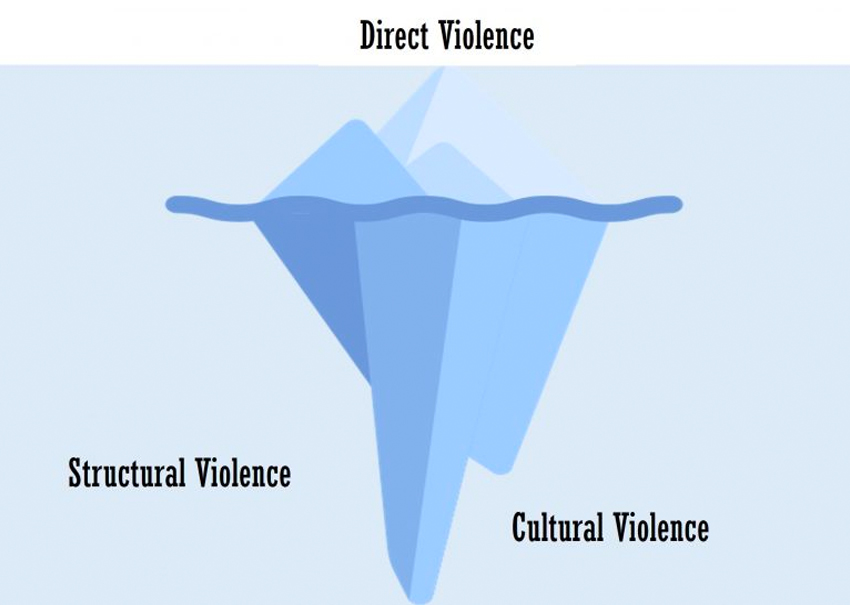
Structural Violence
Violence can be direct or indirect. Direct violence, also known as personal violence, includes the physical act of inflicting visible wounds, for example by hitting. However, indirect violence, also known as structural or institutionalised violence, is caused as a result of institutional or social structures that prevent certain people from fulfilling their basic needs or achieving their full potential.
The aggressor is not a person, but a series of norms, practices and policies that have become institutionalised and hence, the violence it inflicts becomes invisible and even normalised. For instance, social discrimination, poverty, rural migration, income inequality, gender pay gap are all forms of structural violence because they deprive a certain section of the population from meeting their basic needs and living a life they value.
To use the analogy of an iceberg, direct violence forms the tip of the iceberg whereas structural and cultural violence comprise the larger mass which mostly remains hidden. [Include an image of Galtung’s Violence iceberg/triangle]
These social structures and cultural norms play an important role because they justify the physical act of violence. For instance, the entrenched belief that men are superior to women and hence more desirable, provides a cultural saction to female foeticide and infanticide, dicriminatory practices against women and girls, domestic violence, gender stereotypes at home, workplaces and in society, as well as lower rate of education enrolment of girls.
The list is long and endless, and in the end, deprives all people, including men, of their full human potential. That is why it is important to become aware of our implicit biases, assumptions and beliefs, and see how these unconsciously manifest in our daily behaviours and decision making. The key is to establish the values of justice, equality and respect for the dignity of all life in our hearts, and make this conviction the basis of all our actions.
 To Read
To Read
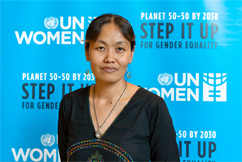
How Gender Inequality and Climate Change are Interconnected:
The climate crisis is not “gender neutral”, and women and girls experience the greatest impacts of climate change. This has a multiplier effect as it furthers existing gender inequalities and threatens their livelihoods, health, and safety. Find out why gender equality is key to climate action:
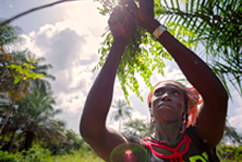
Learn about five ways to build gender equality and sustainability:
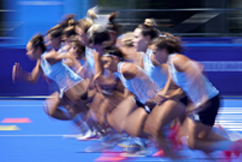
Olympics Setting New Records for Gender Equality:
When women first participated at the Olympics in Paris in 1900, only 22 out of the 997 athletes were women and only competed across 5 sports. The Tokyo 2020 Olympics became the most gender equal yet in terms of female participation. Many measures were taken to ensure this.
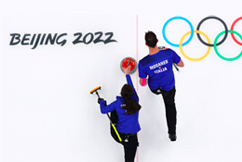
Further, Beijing 2022 has been the most gender-balanced Olympic Winter Games in history, with women accounting for a record 45% of the athletes.
 To See
To See
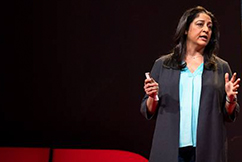
A Bold Plan to Empower 1.6 Million Out-of-School Girls in India:
Girl’s education can help address 9 out of the 17 Sustainable Development Goals. In this TED Talk, social entrepreneur Safeena Husain shares how she is working towards this.
Watch here
 To Listen
To Listen
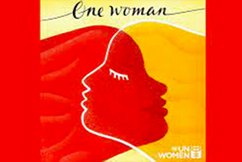
One Woman – The UN Women Song:
In 2013, 25 acclaimed singers and musicians, women and men, from China to Costa Rica, from Mali to Malaysia, came together to spread a message of unity and solidarity: We are “One Woman”. Listen to this empowering song on gender equality below:
 To Play
To Play
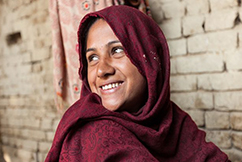
Test Your Knowledge on Gender Inequality Existing in the World:
Do you know these alarming facts about gender inequality? Take this simple quiz to test your knowledge and help close the gap. Take Quiz
Highlighting the crucial role of empowering women, SGI President Daisaku Ikeda shares, “Valuing the wisdom and capabilities of women is critical to the development of any organization or society. Organizations where women are full, contributing participants are open and energized by a wide range of opinion and approaches. This is clearly apparent in the business world, where trends show that corporations that actively embrace diversity are more creative, responsive and profitable. Embracing diversity does more than assure the protection of individual rights. Bringing together the intelligence and perspectives of a wide range of people unleashes new creative energies, enabling society as a whole to move forward in a richly harmonious manner. In this sense also, empowering women is crucial.”
However, the COVID-19 pandemic has exacerbated gender inequality and intensified the urgent need for reform. While the pandemic has placed an immense burden on healthcare systems, this impact has been most felt by women as 70% of health workers are women (UN Women 2021, Beyond COVID-19, pg37). Many women have also had to put their careers on hold or take leaves to take care of sick family members. Also a large proportion of those who have lost jobs have been women, and this has been particularly challenging for working mothers who have young children. Further, care work such as caring for the elderly or family members is often in the form of unpaid labour carried out by women, improvements are needed in paid care work. President Ikeda says, “I am thoroughly convinced that gender equality and women’s empowerment are the keys to overcoming the COVID-19 crisis and building an economy and society that sustains human dignity.” (Peace Proposal 2022)
He further says, “The goal of gender equality is to open the path for all people, irrespective of gender, to bring forth the light of their inner dignity and humanity in a way that is true to their own unique self.” (Peace Proposal 2017)
He stresses that the 21st century must be a century of women, and expresses his belief, “The wisdom and power of women–their attentive commitment to reality, their care and concern for the people in their immediate surroundings, their capacity to treasure life itself– must be fully reflected throughout society. Only then will we see solid progress toward the resolution of critical global problems and realization of peace.”
He further adds that “Women will play a crucial role in realizing this kind of world in the twenty-first century. The values, principles, and ideologies that are presently being called into question are all the products of male-dominated societies. The emergence of women in the twenty-first century has a significance that goes to the very core of human civilization.” (2001 Peace Proposal)
However, ultimately, even while systems may change to make the world more gender equal, President Ikeda says that, “…unless they (women) were able to break free from their own inner weakness and passivity and demonstrate their full strength and potential, they would be unable to savour genuine autonomy as individuals.” (The New Human Revolution, Volume 17, Chapter Hope) True liberation for women lies in this “internal liberation”.
Actualising gender equality is at the heart of Soka Gakkai’s efforts. In November 2021, a new and updated Soka Gakkai Charter was adopted. Its purposes and principles articulate ten points, including: “The Soka Gakkai will safeguard and promote human rights. It will not discriminate against any individual and will oppose all forms of discrimination. It will contribute to the achievement of gender equality and promote the empowerment of women.” This cements the commitment of the Soka Gakkai – to always work towards building a world where the dignity of each life is respected, without any distinction between any individual.
Supporting Marginalised Women Forest Dwellers across IndiaSanghamitra Dubey | Women’s Division | Bhubaneswar
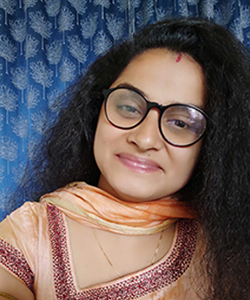
Coming from a lower middle class family I had to struggle a lot financially. There were days when I barely managed to afford three meals a day. I wanted to be like everyone else – get admission in a B-school and get a comfortable life. Encountering President Ikeda completely changed my perspective towards life. Rising above his personal challenges as a young man he continued working for humanity and has created history. This inspired me to work for marginalised people in India and to actualise President Ikeda’s Peace Proposals which he submits to the UN every year.
As a woman, I faced many difficulties in this field as it required me to travel to the interior pockets of various Indian villages. But I was determined to meet the forest dwellers in their own homes to listen to their struggles. Their lives are very difficult and I learned from them how with little resources one can be happy. Women forest dwellers are suffering the most.
Violence against women in deep forest areas is highest as per the National Crime Records Bureau report. SGI President Ikeda says: “Women hold the key to opening a future filled with hope, as Mahatma Gandhi emphasized: “If by strength is meant brute strength then, indeed, is woman less brute than man. If by strength is meant moral power then woman is immeasurably man’s superior… If non-violence is the law of our being, the future is with women.””
I have big dreams on how I want to bring change in society. I would like to collaborate with different women forums in India and to document women forest-dwellers’ stories to publish as a book. I have recently started documenting indigenous knowledge and wisdom, particularly from forest-dwelling women in remote pockets of Sundergarh, with the hope that it will serve as a directory for future generations. I would like to take the voice of the village people, particularly the womenfolk from villages, to key stakeholders. They are the actual protectors of our environment. Though they are acting locally, they are contributing globally.
Breaking the Glass Ceiling in the Ad Film IndustryNomita Roy Ghosh | Women’s Division | Mumbai
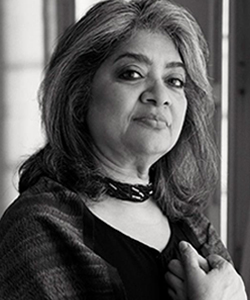
When I left the safety of my cushy job as a Creative Director in India’s largest ad agency to start my own ad film production company, it was a bold decision to enter a totally male dominated industry. While I excelled in my work and won many awards, I suffered from crippling self-doubt, hungry for validation from others. Encountering SGI President Ikeda’s writings taught me to respect the dignity of my own life, and to become a wiser, stronger, more joyful, more creative human being.
Determined to do work that would make a positive difference to the world around me, believing in the inherent dignity of a woman’s life, I refused to make films for fairness creams or Barbie dolls or gender-insensitive scripts. I made films free on critical women’s issues like domestic violence and girl education. I lost clients and projects, and was sometimes made fun of. But I also gained a reputation as an outspoken champion of women’s rights. I continued to get work, remaining amongst the top three production houses for over two decades.
It’s critical for popular culture, entertainment and arts to acknowledge the true role and potential of women in creating a future of peace and dignity. Through consistent efforts, more and more capable women are coming into the workforce and bringing their energy, creativity and unique perspective to the process. Though we have covered a lot of ground, we still have a long way to go to change people’s mindset about women and challenge automatic assumptions of women’s incapacity. In ad films, women are still portrayed as dependent and powerless – from the mother who is tied to the kitchen stove to the young girl who can’t get married because she is dark. But changes are visible – like the depiction of women wrestlers, or couples sharing home responsibilities, or young girls deciding their futures and women claiming their place in the sun.
Awakening to my own inherent potential, I have even made efforts to protect the environment. I produced films free for conservation projects and wild animal protection. I also started an NGO called Vanashakti which is working on the ground, cleaning up rivers like the Mithi, protecting mangroves and wetlands and salt flats, preserving the nesting grounds of Ridley turtles in Goa, and fighting to protect our forests and coastlines. We worked through the Covid-19 pandemic to bring relief to climate refugees and bring about a more powerful wave of climate consciousness
 SDG Tip for Daily Life
SDG Tip for Daily Life

Gender equality begins at home: Here are ‘Seven tips for raising kids who would become advocates for gender equality’ by UN Women.Read here
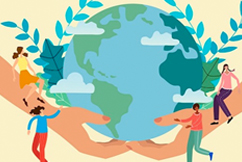
Updates
SGI President Daisaku Ikeda’s 2022 Peace Proposal titled “Transforming Human History: The Light of Peace and Dignity”
President Ikeda issued his 40th annual peace proposal on January 26, 2022. Ambassador Anwarul K. Chowdhury, former UN Under-Secretary-General and High Representative and founder of the Global Movement for the Culture of Peace, commented: “I know of no one who has highlighted the role and responsibility of the United Nations so consistently, relentlessly and substantively for such a long period of time as President Ikeda. For the last 40 years, his annual peace proposals have contained brilliant ideas and suggestions for the good of humanity. I am encouraged he has highlighted empowerment of people as a major element in building the Culture of Peace.”
President Ikeda offers three perspectives on changing the course of human history as the world reels from the COVID-19 pandemic: 1) to head-on face the issues the pandemic has exposed and reweave the social fabric so that it can support people’s lives, 2) to create a consciousness of solidarity that extends to the entire world; and 3) call for an economy that inspires hope in young people and enables women to shine with dignity.
Read here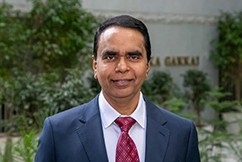
Vishesh Gupta, BSG Chairperson, Talks About BSG’s Work Revolving Around Peace, Culture And Education in an interview with the Free Press Journal published on 5th January 2022.
Read here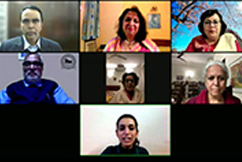
BSG Webinar titled ‘Creating a Century of Peace by Raising Global Citizens through Humanistic Education’:
This webinar was held on 11th February 2022 to commemorate the 30th anniversary of formation of BSG Education Division in 1992. It was attended by over 3,000 members and guests including many from the media. Panellists included Padma Bhushan Dr. Shyama Chona (Founder-President of Tamana Association), Ms. Kavita Anand (Founder Director, Adhyayan Quality Education Services), Prof. R.S.S. Mani (Vice-President, ITM Group of Institutions) and Ms. Vandana Jain (Education Division Chief, BSG) shared their unique journeys, their views on ‘Global Citizenship’ and their vision for education towards 2030.
Read more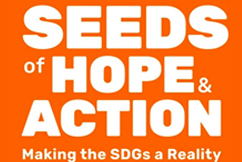
Seeds of Hope and Action (SOHA) Exhibitions:
Over the month of January and February 2022, BSG organised online SOHA Exhibitions at Kirori Mal College, Delhi University; Nahar International School, Mumbai; Jagan Institute of Management Studies (JIMS), New Delhi; IES Management College and Research Center, Mumbai; IIS University (Deemed to be university), Jaipur and Narsee Monji College, Mumbai. The exhibition is a joint initiative of the Soka Gakkai and the Earth Charter International and it introduces a positive vision for sustainable living that can contribute to the realization of the Sustainable Development Goals (SDGs).
Know moreContact Us
Any queries or suggestions regarding the newsletter can be addressed to sdg@bharatsokagakkai.org
To know more about the ‘BSG for SDG’ initiative, visit the: BSG website/
